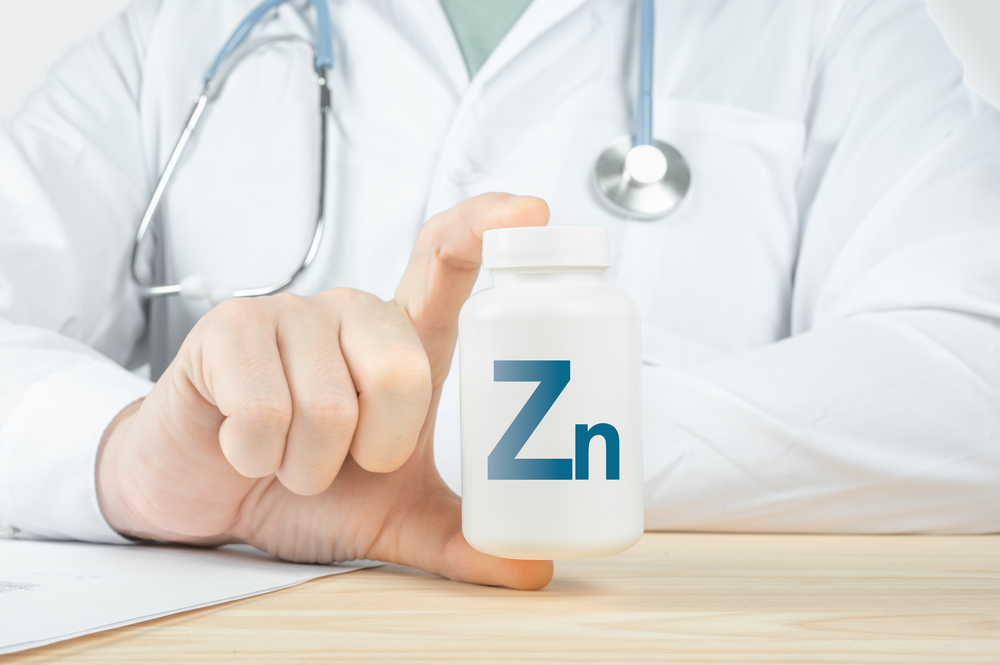Zinc is an essential nutrient that is in charge of lots of different things in your body. It helps the immune system, helps the metabolism function, and is a key nutrient in all stages of wound healing, among other things. Zinc is important in supporting growth during childhood. Women should be getting 8 mg of zinc a day, while men should be getting 11 mg.
You can find zinc in your diet in foods such as chicken, red meat, fortified breakfast cereals, beans, and fish. There are lots of other zinc supplements if your diet is lacking in enough zinc for your body.
Taking a zinc supplement has many advantages. One being that it helps improve your immune function. Low levels of zinc put you at a higher risk for infections such as pneumonia. It has shown that if you come down with a cold, having some zinc cough drops during your cold will actually shorten the length of your cold. It has not been proven that zinc will prevent colds, but it can shorten the time you have to deal with them if you end up getting sick.
Another advantage of zinc is it can help treat diarrhea. Taking a zinc supplement especially in infants has shown to slow down the diarrhea, as well as shorten the duration of the diarrhea episodes. This is especially helpful in children who have a poor diet, or suffer from malnutrition.
Zinc also helps wound healing. Zinc is essential in every stage of the wound healing process. People who suffer from long term wounds or ulcers have been tied to having low zinc levels as well. Taking a supplement can help heal these long term wounds or ulcers. Zinc has also been shown to help treat and prevent stomach ulcers. Giving an oral zinc supplement to infants can also help heal a diaper rash. Oral zinc can also be used to help clear up acne. This is because zinc reduces inflammation, as well as produces healthy P. acnes bacteria, and suppresses oily gland activity.
Zinc has antioxidant properties. This advantage of zinc helps with chronic diseases. People who suffer from high blood pressure, diabetes, or metabolic syndrome may benefit from taking a zinc supplement. Zinc reduces the oxidative stress in the body. This oxidative stress can lead to a higher risk of heart disease, cancer, and mental decline. Antioxidant properties can help with mental performance as well. People with diabetes may benefit from zinc because it helps improve blood sugar control.
Another advantage from zinc is it prevents cell damage to the retina. Age-related macular degeneration happens in time to everyone. Taking zinc has shown that it can slow the delay of this degeneration and vision loss. It has not shown that it will prevent this degeneration from happening.
Zinc improves your mouth health. Zinc can help with bad breath. This can be achieved by chewing gum with zinc, eating a hard candy with zinc, or using a mouth rinse that contains zinc, all will help reduce bad breath. Zinc also helps heal cold sores. Applying a topical cream containing zinc has shown to reduce duration and severity of cold sores. Zinc helps prevent gingivitis, a gum disease. Zinc can also help improve your ability to taste.
Zinc also helps with bone health. Healthy bones are extremely important, especially for children in their growing years. Zinc plays an essential role in bone formations and health. Taking a daily supplement of zinc can help prevent osteoporosis, when new bone growth doesn’t keep up with old bone removal.
Having your daily amount of zinc has lots of benefits from keeping your immune system strong, to delaying certain age related disease, to helping wounds heal. Whether you get your daily amount from your diet, or from a supplement zinc has lots of advantages to provide for you.
Zinc helps wounds heal and your immune system fight infections. Are you getting enough of this essential nutrient? #HealthSurgeon
Sources:
https://www.mayoclinic.org/drugs-supplements-zinc/art-20366112
https://www.medicalnewstoday.com/articles/263176#11-benefits
https://www.webmd.com/vitamins/ai/ingredientmono-982/zinc
https://www.healthline.com/nutrition/zinc#benefits








